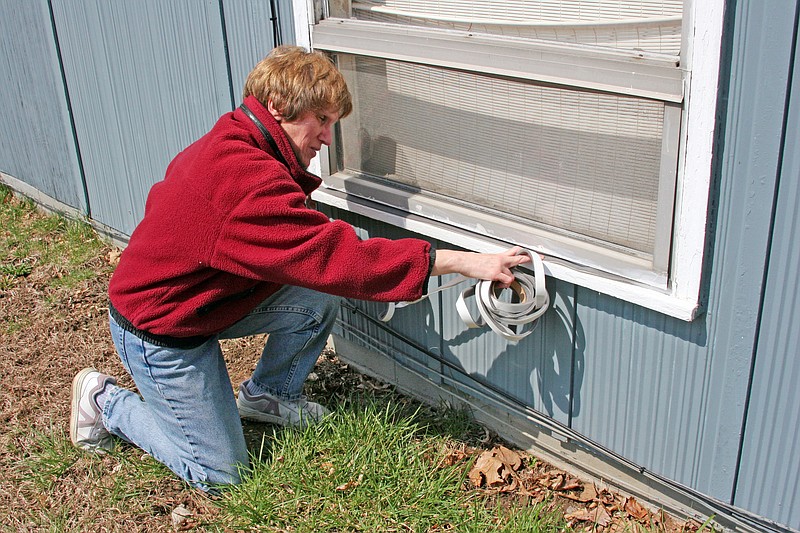The period following Earth Day is a great time to think about the impact our homes have on the environment. But beyond lowering your environmental impact, increasing your home’s efficiency will also increase your comfort, lower energy bills and improve your home’s value — all at once! Here are five quick tips to make your home a model of efficiency.
Protect south-facing windows
The biggest impact on your home’s heat level in the summer comes from the south, where sunlight hits at the harshest angle. This means south-facing windows require more attention. If possible, install double-pane windows to help block heat entry. Physical barriers can also prove highly effective, according to the U.S. Department of Energy. A light-colored awning is good way to reduce heat gain, as are blinds or reflective films. If this all sounds too complicated or costly, you can also simply put up some drapes or plant trees and bushes to help block sunlight.
Slay energy vampires
Garlic and silver bullets won’t get rid of the creatures of the night sucking up your home’s lifeblood and cranking up the power bills, but a little preventative action might. The DoE warns many home appliances continue to use small amounts of energy when they’re plugged in, even if they’re turned off — in other words, they’re vampires sucking energy out of our homes. The solution here is simple: Unplug what you can and use power strips for everything else.
Your kitchen appliances draw small amounts of energy. Coffee makers, toaster ovens, microwaves and other small appliances should be unplugged or turned off via wall switch.
The thirstiest energy vampires make their lair in your living room. TVs, DVRs, cable boxes, video game consoles and computers all slurp up energy while turned off. To solve this, plug as many of them as possible into power strips so you can switch them off en masse before retiring for the night. You can also look into smart power strips that detect when devices are in sleep mode and automatically block them from wasting energy.
All these energy uses are small on their own, but they can add up to hundreds of dollars a year.
Check your HVAC filters
OK, we say this one a lot, but seriously, replace the filters in your HVAC system. A dirty filter wastes energy and money and keeps your home from staying at a comfortable temperature. Keeping clean filters is one of the single easiest and most effective things you can do to ensure an energy efficient home.
Seal up doors, windows
Remember your parents telling you not to heat or cool the whole neighborhood by leaving the doors or windows open? Well, it turns out they might not have to be open to leak energy. Check their edges for air loss or draftiness. Even a small amount of air loss can force your HVAC system to work harder and burn up energy for no good reason. Insulate, seal or caulk where needed.
Schedule an energy audit
Home energy auditors are skilled pros who conduct room-by-room reviews of how efficiently a home uses energy. They’ll use advanced diagnostics such as blower door tests or thermographic scans to determine air leaks and over- or under-insulated areas and help you find where you’re losing the most energy. This work averages about $400 and will take most of a day to complete. They’ll provide you with a written report and recommendations that can save 5-30 percent on utility bills. Over time, the audit can pay for itself — and then some!

